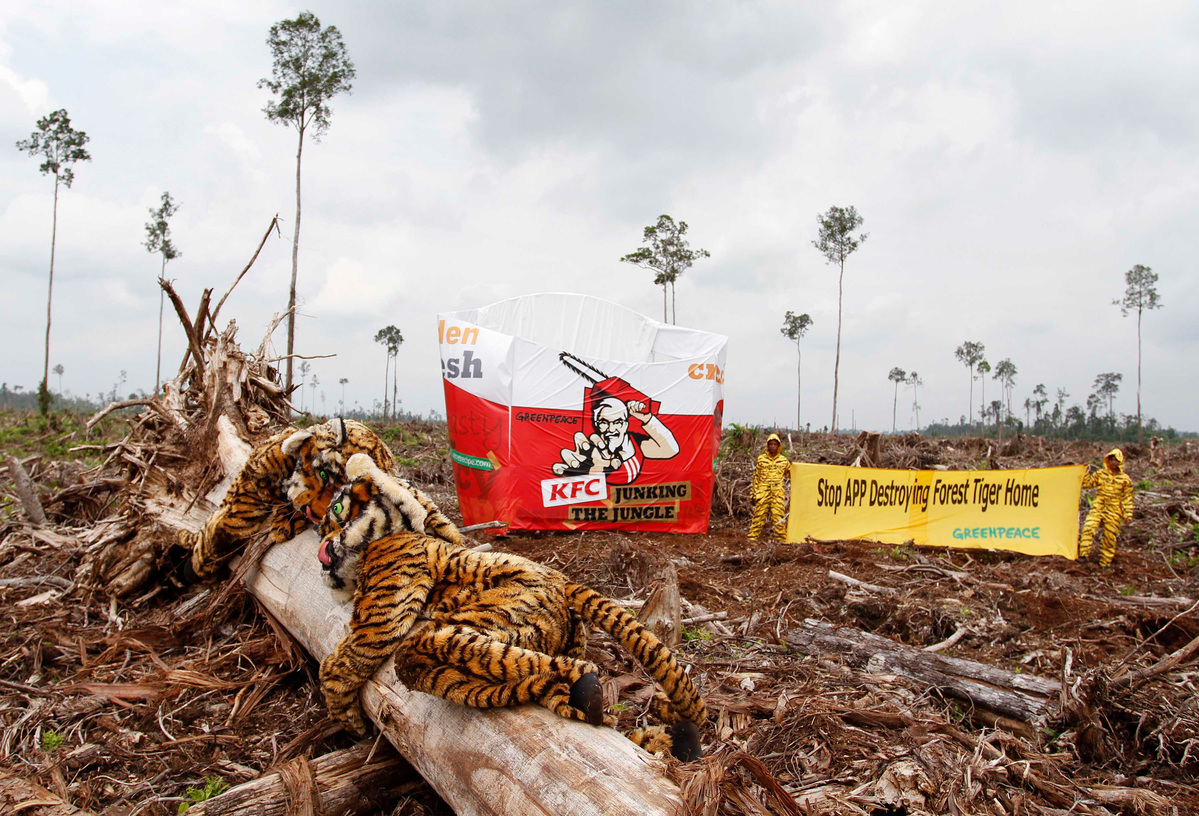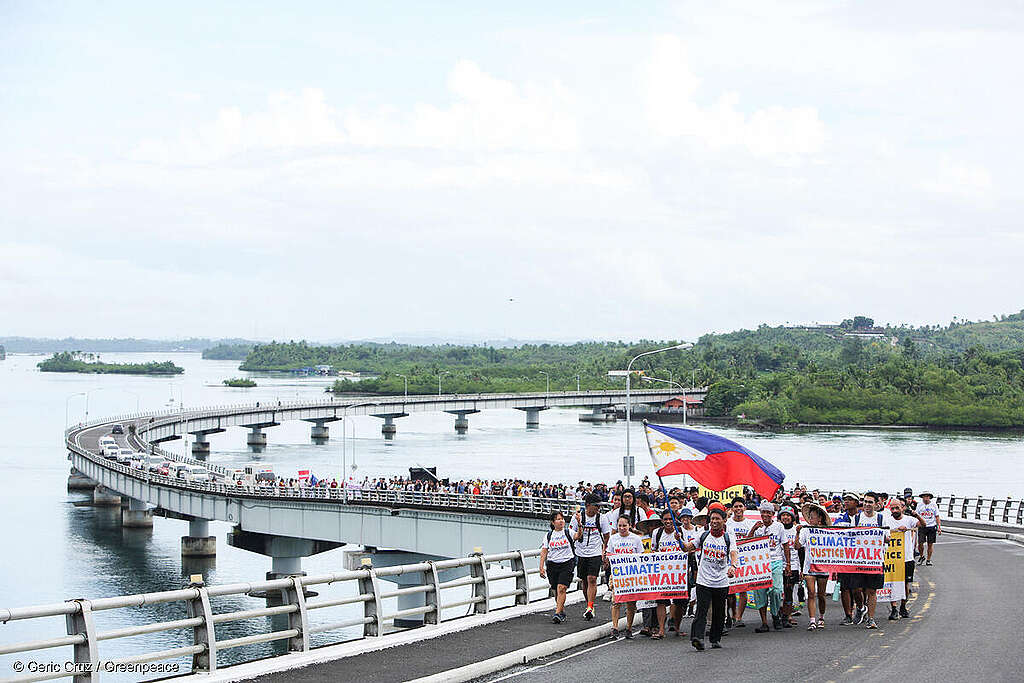
It was only last month when a group of Filipino climate and human rights advocates embarked on a grueling 1,000-kilometer journey that came to be known as the Climate Justice Walk 2023. Walking and biking for 30 days, the team reached Tacloban City on the eve of the 10th commemoration of Typhoon Haiyan’s landfall.
Haiyan (locally known as Yolanda) was 2013’s most powerful and devastating storm. For a typhoon-prone country like the Philippines, Haiyan not only shattered climate records, it also broke a nation- claiming more than 7,000 lives, with thousands more unaccounted for even to this day.
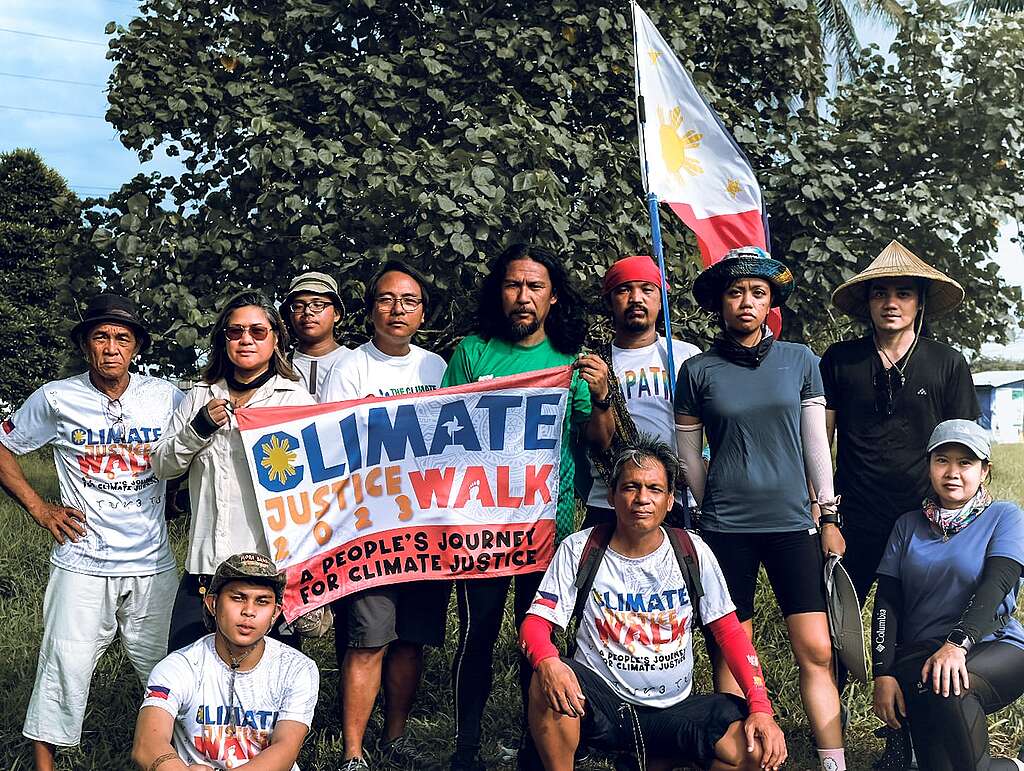
The Climate Walkers all come from different fields and backgrounds. They were composed of Gen Zs, Millennials, Gen X-ers, and Boomers. Many hail from climate-impacted cities and provinces. While they may have different reasons for taking part in such a physical and mental undertaking, all were united in their desire to take action for the environment. Most felt a profound need to raise the banner for Climate Justice, especially after witnessing how many Filipinos continue to be impacted by the climate crisis- fueled by Big Polluters from the oil and gas industry whose dirty businesses contribute to climate change.
Here are some of the Climate Walkers’ thoughts and reflections on the recent Climate Justice Walk.
Walking for others. Walking with my community.
By Sheena Orihuela
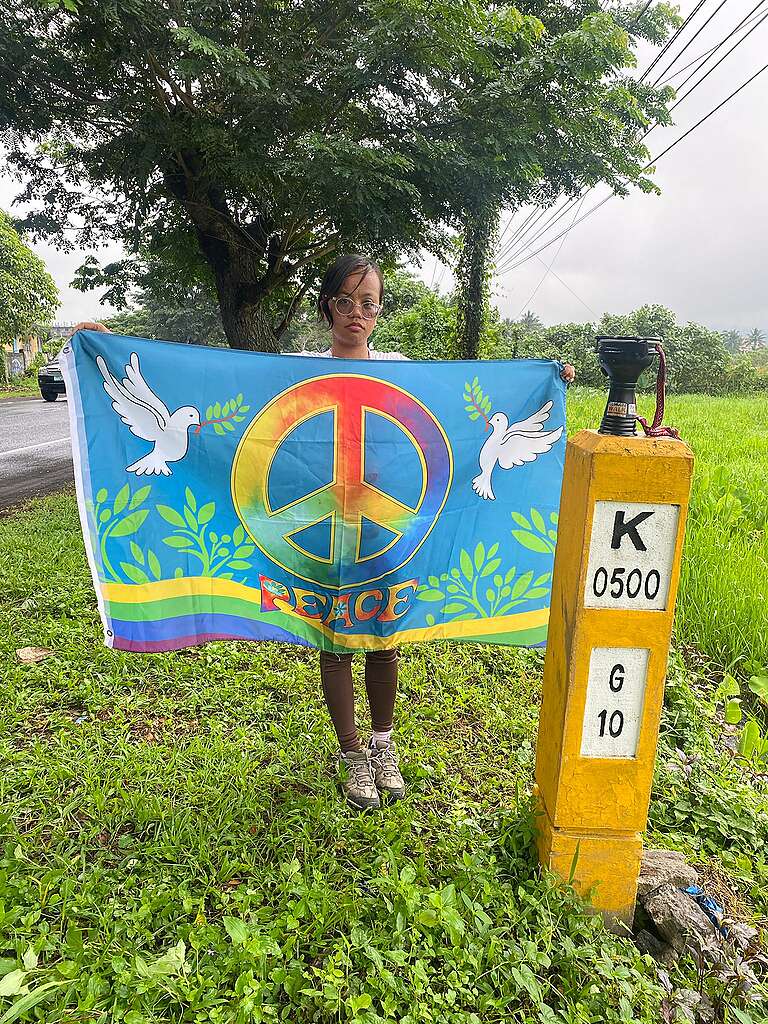
Why did I join the Climate Justice Walk? For one thing, I didn’t join to be called an advocate. Days before the send-off, I was having second thoughts because I was scared that I might not make it and be a burden to the team. But I had this urge, an inner voice telling me to take on this journey just like when I volunteered in the Haiyan relief operation 10 years ago, where I got to talk with the victims. I remember crying my heart out, asking why they must suffer. I was moved by the outpouring of support and donations from people from different parts of the world. I vowed to serve the least, the last, and the lost and to care for the environment no matter what.
I joined the Walk to experience and embrace everything —the possibilities, the unknown, to step out of my own comfort zone, to reach out to others, and to find my voice again within the movement. It was beyond what I expected- the Walk was the healing and humbling therapy I needed.
As I walked through the different cities, provinces, and islands with the Climate Walkers, I came to witness and fully appreciate the beauty of the Philippines- its changing landscapes, diverse flora and fauna, distinct food, language, and local culture. I became one with nature and the people. Despite walking for several kilometers, rain or shine, we were greeted by wide smiles and the kindness of people. Their warm welcome gave us strength after a whole day of walking under the elements.
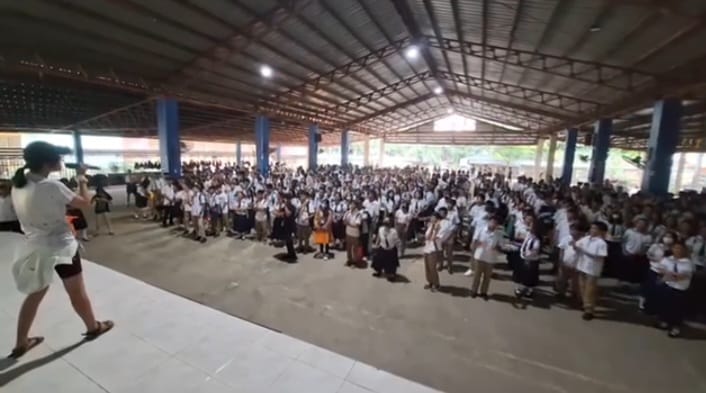
It was heartwarming to see local youth being engaged and actively doing their part in caring for the environment. Many walked with us. You could see and feel how much they want to be part of the solution in their own way. On the flipside, there were also those who were wary of us, even tagged us as leftists or called us a nuisance. But thankfully, local support was very evident especially from local leaders and civil society groups. We even got to witness two Climate Emergency declarations from the local governments of Albay Province and Catbalogan City. It was a victory for the local climate movement.
After everything I experienced during the month-long journey, I realized that for Climate Justice to win, we must start listening to the communities’ stories, hopes, and struggles. For as long as there is goodness, for as long as there is resistance and clamor for change, our calls will prevail.
This is the community that I long and hope for – one that uplifts and celebrates diversity fueled by genuine love and care for one another and for our planet. My faith in myself and the advocacy has been renewed. There is still hope for us to win this fight and to reclaim our future.
Sheena Orihuela is one of the Core Walkers and is a staunch advocate for climate action, sustainability, and animal liberation. She is an Advocacy Officer of Living Laudato Sí Philippines- an organization that calls out financial institutions to divest from environmentally harmful activities. Sheena is currently an observer at the COP28 climate summit in Dubai.
Walking Towards Climate Justice
By Amalie Conchelle H. Obusan
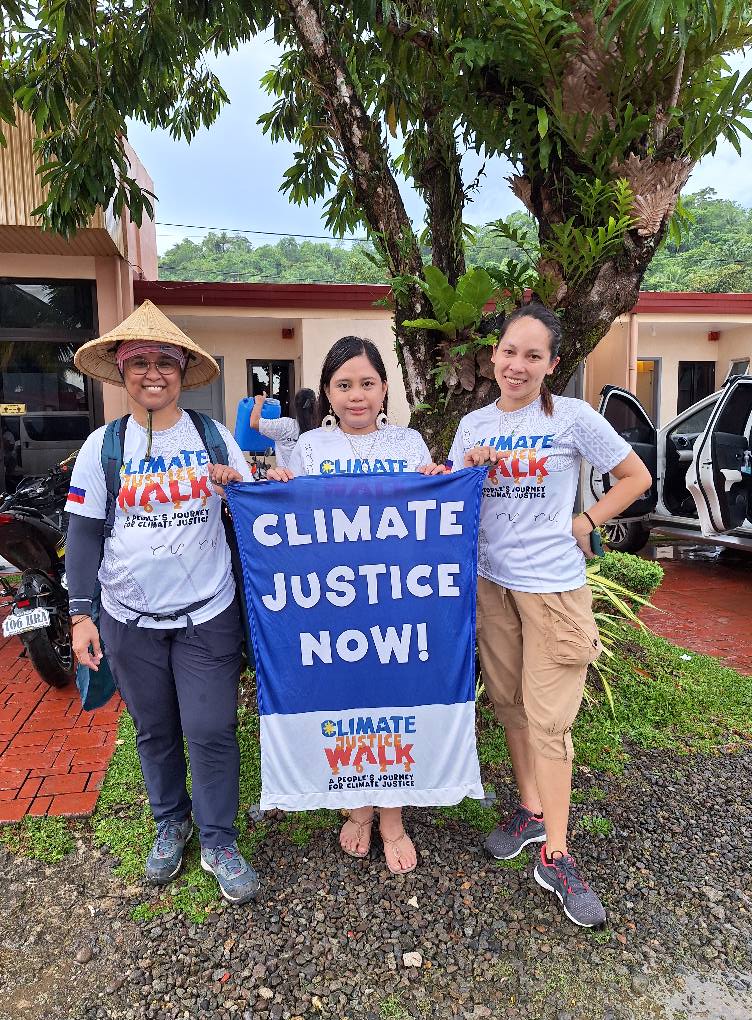
In the heart of the Philippines, I joined the Climate Justice Walk a few days before the culmination walk in Tacloban. This decision is not merely a physical challenge; it is a profound commitment rooted in my close connection to the climate-impacted communities of Tacloban and other parts of the Philippines over the past nine years. Though I only walked for five days, I made every step count.
Tacloban, a city etched into the collective memory as a survivor of Typhoon Yolanda (international name Haiyan), has borne the brunt of climate change with a resilience that is simultaneously heartbreaking and inspiring. Witnessing the struggles of communities and even close family members grappling with rising sea levels, extreme weather events, and diminishing resources has been an indelible part of my life. It is a stark reminder that those least responsible for the climate crisis often suffer its most severe consequences.
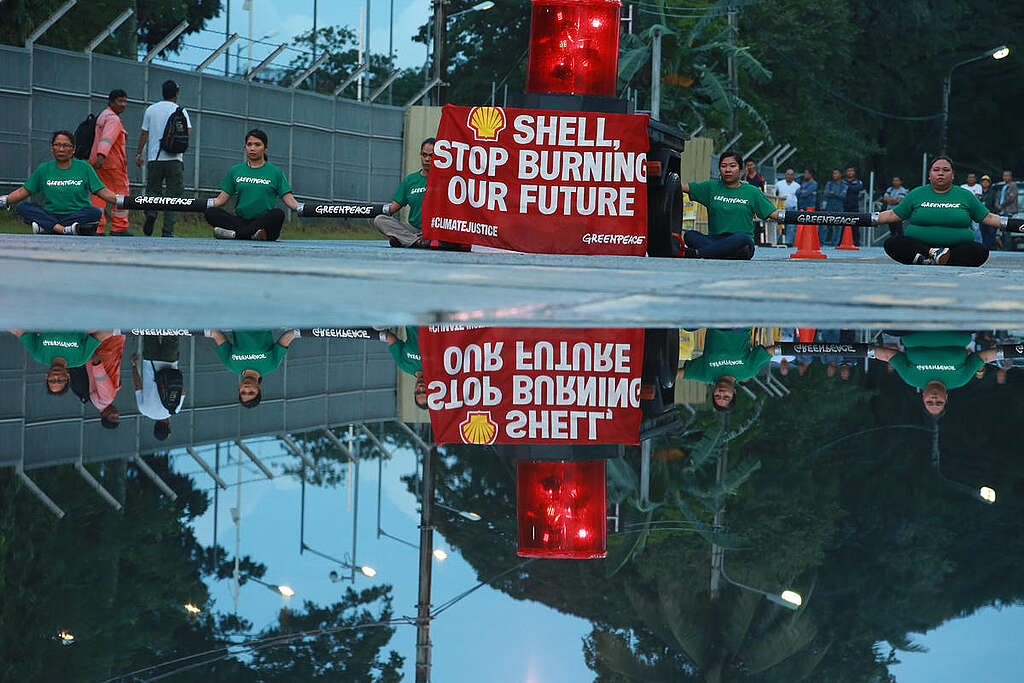
Let’s stand with Filipino communities calling for an end to fossil fuels and payment for climate damages.
Get InvolvedAs I laced up my walking shoes, I carried with me the stories of Tacloban from 10 years ago until the present – stories of resilience, loss, and an unyielding spirit that refuses to be extinguished by the storms. The Climate Justice Walk is not just a personal pilgrimage amongst kindred friends; it is a call for justice. It is an assertion that the culpability for climate change lies with powerful entities, notably fossil fuel companies, whose insatiable pursuit of profit has wrought havoc on vulnerable communities.
The injustice is glaring – while communities like Tacloban grapple with the aftermath of climate change, fossil fuel companies continue to amass staggering wealth, seemingly untouched by the devastation they have wrought. It is a testament to the urgent need for accountability and a fundamental paradigm shift towards sustainable, eco-friendly, renewable alternatives.
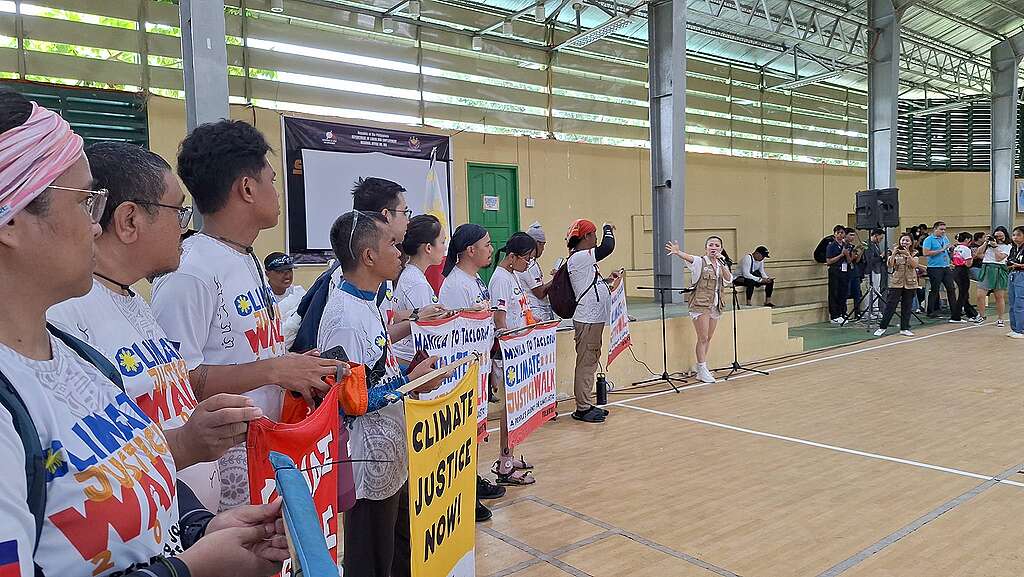
However, as I stepped into this arduous journey, I also carried with me a profound sense of hope. The Climate Justice Walk is a testament to collective action, a unifying force that transcends geographical boundaries. With every step, I joined a chorus of voices demanding justice for those who have been unjustly affected. It is a hopeful stride towards a future where communities are empowered to withstand the impacts of climate change and where corporate giants are held accountable for their actions.
In the footsteps of solidarity and resilience, I am optimistic that our collective efforts will create ripples of change, leading to a world where justice prevails, and the wounds inflicted by climate change begin to heal. The Climate Justice Walk is not just a physical journey; it is a pilgrimage towards a sustainable and just future for all.
Amalie Conchelle H. Obusan is a long-time Climate Justice activist and a mother to two young environmentalists. She has undertaken the Camino de Santiago twice. Currently, Amalie works as a learning and development professional at Greenpeace International.


